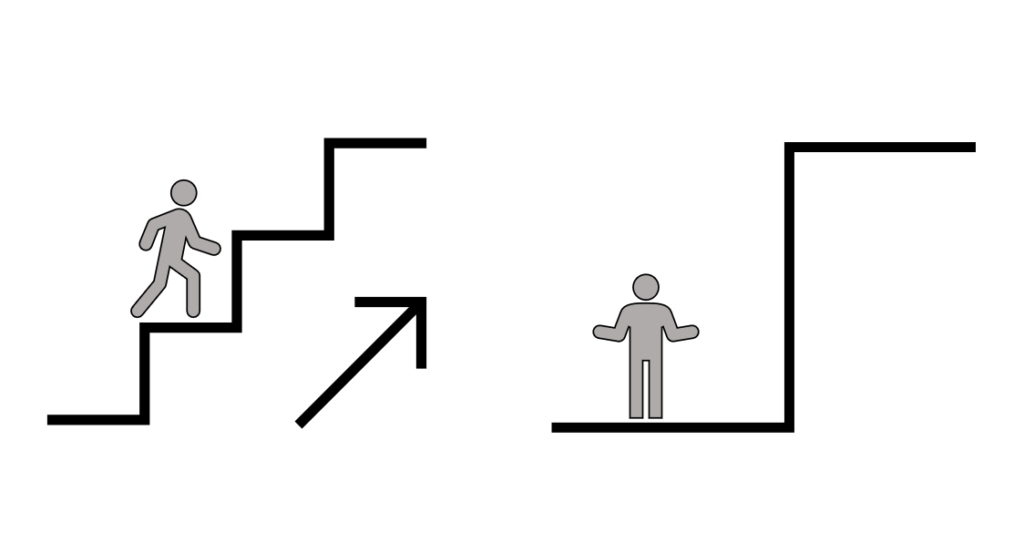Imagine that you registered for a course to learn a new language. You go in excited, and probably a bit nervous, but ready for what you hope to be a rewarding experience. The first thing you might do as a class is introduce yourselves, and probably learning a basic phrase like “my name is ______” in whatever language it is you’re learning. Over the course of the program you’d expect yourself to progress through more in depth material, words that are most common first, followed by learning how to string words together properly, making short sentences, proper verb tenses, etc., until you work your way up to being able to write a paragraph maybe, and have simple conversations.
How would you feel if instead of that, the instructor just handed you a book in the new language and told you to read it and write a report on it by next week? Or if they made you read aloud long speeches on the first day? You’d probably feel overwhelmed, a bit disappointed, and most of all discouraged. What could’ve been a fun and new experience has now turned into something negative, and it all could’ve been avoided by following one simple concept: learning progressions.
Learning progressions are essentially what I described in the expected language class, a lot of small, purposeful steps, on the way to a bigger goal. Just like you wouldn’t try to learn the piano by sitting down and instantly attempting an extremely advanced song, you should never expect students to go from knowing nothing about a topic or skill to mastering the whole thing in one lesson. Imagine it like a 2 story house, how do you get to the second floor? You use the stairs right? Now imagine if instead of stairs there was just a big wall with an opening at the top. That would never work! With learning progressions you break up the curricular “goal” into smaller chunks that are easier to work on and master individually, and then link them up to reach that main goal. Basically, imagine each step in that staircase as a chunk, and the second floor as the main goal.
Will some people reach that end goal faster than others, and without needing all the steps? For sure. But to make a classroom that is equitable to all students, we need to offer ways of learning that work for students at all levels. Using learning progressions not only helps students to understand things better, but it also offers us as educators an insight into where students are in their learning, and in that way allows us to educate better.